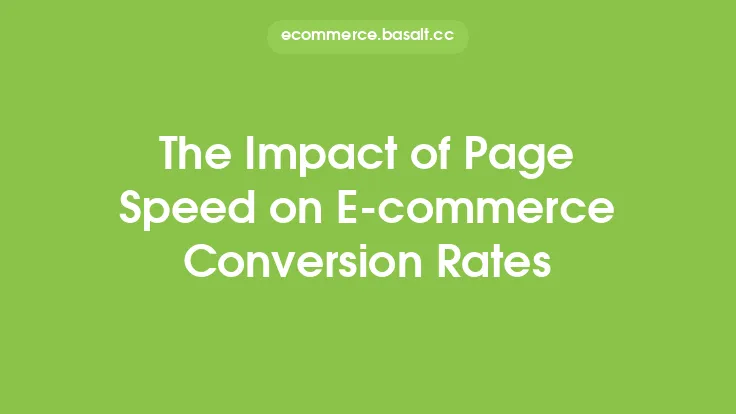Search engines have become an integral part of our daily lives, and their algorithms play a crucial role in determining the visibility and success of e-commerce websites. A search engine algorithm is a complex system that analyzes and ranks websites based on their relevance, quality, and user experience. Understanding how these algorithms work and their impact on e-commerce is essential for businesses to develop effective online marketing strategies.
Introduction to Search Engine Algorithms
Search engine algorithms are constantly evolving, with new updates and changes being made regularly. The primary goal of these algorithms is to provide users with the most relevant and useful search results. To achieve this, search engines use a combination of factors, including keyword usage, content quality, link equity, and user experience metrics. The algorithms assess these factors to determine the ranking of a website in search engine results pages (SERPs). Major search engines like Google, Bing, and Yahoo use unique algorithms, but they all share the common goal of providing users with the best possible search experience.
How Search Engine Algorithms Affect E-commerce
Search engine algorithms have a significant impact on e-commerce websites, as they can influence the visibility, traffic, and ultimately, the sales of an online store. A website that ranks high in search engine results is more likely to attract organic traffic, which can lead to increased conversions and revenue. On the other hand, a website that fails to meet the algorithm's requirements may struggle to attract visitors, resulting in lower sales and revenue. E-commerce businesses must therefore stay up-to-date with the latest algorithm updates and adjust their online marketing strategies accordingly.
Key Factors That Influence Search Engine Algorithms
Several key factors influence search engine algorithms, including content quality, link equity, user experience, and technical optimization. High-quality, relevant, and engaging content is essential for e-commerce websites, as it helps to attract and retain users. Link equity, which refers to the number and quality of links pointing to a website, is also crucial, as it indicates the website's authority and credibility. User experience metrics, such as page speed, mobile-friendliness, and navigation, also play a significant role in determining a website's ranking. Technical optimization, including factors like website structure, XML sitemaps, and meta tags, is also essential for helping search engines understand and crawl a website's content.
The Role of Artificial Intelligence in Search Engine Algorithms
Artificial intelligence (AI) and machine learning (ML) are increasingly being used in search engine algorithms to improve their accuracy and effectiveness. AI-powered algorithms can analyze vast amounts of data, identify patterns, and make predictions about user behavior. This enables search engines to provide more personalized and relevant search results, which can significantly impact e-commerce websites. For example, AI-powered algorithms can help search engines understand the context and intent behind a user's search query, allowing them to provide more accurate and relevant results.
The Impact of Search Engine Algorithm Updates on E-commerce
Search engine algorithm updates can have a significant impact on e-commerce websites, and businesses must be prepared to adapt to these changes. Algorithm updates can result in changes to a website's ranking, traffic, and conversions, and can even lead to penalties or filters being applied to a website. To mitigate the risks associated with algorithm updates, e-commerce businesses must stay informed about the latest developments and adjust their online marketing strategies accordingly. This may involve updating content, improving technical optimization, and enhancing user experience metrics.
Best Practices for Optimizing E-commerce Websites for Search Engine Algorithms
To optimize e-commerce websites for search engine algorithms, businesses should focus on creating high-quality, relevant, and engaging content that meets the needs of their target audience. They should also prioritize technical optimization, including factors like website structure, page speed, and mobile-friendliness. Additionally, e-commerce businesses should focus on building high-quality links from authoritative sources, and should prioritize user experience metrics, such as navigation, search functionality, and product information. By following these best practices, e-commerce businesses can improve their visibility, drive more traffic, and increase conversions.
The Future of Search Engine Algorithms and E-commerce
The future of search engine algorithms and e-commerce is likely to be shaped by emerging technologies like AI, ML, and natural language processing (NLP). As these technologies continue to evolve, search engines will become even more sophisticated, and will be able to provide more personalized and relevant search results. E-commerce businesses must therefore stay ahead of the curve, and must be prepared to adapt to the latest developments in search engine algorithms and technologies. By doing so, they can stay competitive, drive more traffic, and increase conversions in an increasingly complex and competitive online marketplace.





